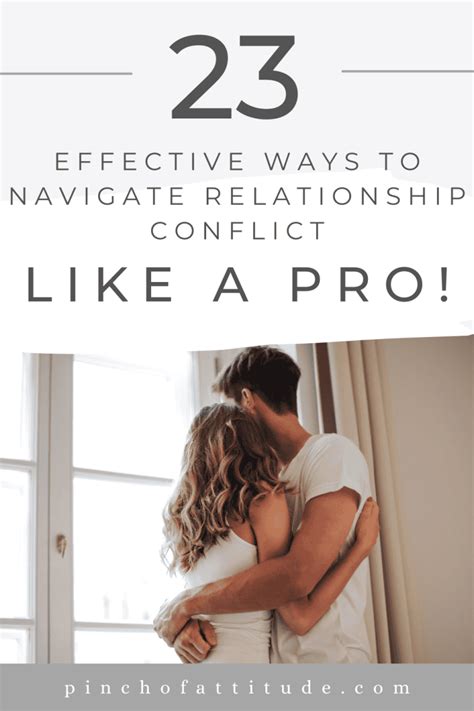Conflict is an inevitable part of any human relationship. Whether with a partner, family member, or friend, disagreements will arise. However, the true strength of a relationship isn’t measured by the absence of conflict, but by how effectively it’s resolved. Learning to navigate these challenges constructively can transform potential breakdowns into opportunities for growth, deepening understanding and strengthening bonds.
Understanding the Nature of Conflict
Many people view conflict as inherently negative, something to be avoided at all costs. In reality, conflict often signals unmet needs, differing perspectives, or boundaries being crossed. When approached with a mindset of resolution rather than winning, it can lead to crucial insights and necessary changes that benefit both individuals and the relationship as a whole.

Strategy 1: Practice Active Listening
One of the most powerful tools for conflict resolution is active listening. This means giving your full, undivided attention to the other person, not just waiting for your turn to speak. Try to understand their perspective, feelings, and needs without judgment or interruption.
- Paraphrase what you hear: “So, what I’m hearing is that you feel frustrated because I didn’t help with the chores.” This confirms understanding and shows you’re engaged.
- Validate their feelings: “I can see why you’d feel frustrated.” Validating doesn’t mean agreeing, but acknowledging their emotional experience.
- Avoid interrupting: Let them finish their thoughts completely before responding.
Strategy 2: Communicate with “I” Statements
When expressing your feelings or concerns, shift from accusatory “you” statements to “I” statements. “You always…” or “You never…” statements often put the other person on the defensive, shutting down communication. Instead, focus on how their actions affect you.
For example, instead of saying, “You never listen to me!” try, “I feel unheard when I’m speaking and you’re looking at your phone.” This approach is less confrontational and invites empathy and understanding.

Strategy 3: Take a Time-Out When Emotions Run High
Sometimes, discussions escalate quickly, and emotions can become overwhelming. When either party feels too angry, upset, or overwhelmed to communicate constructively, it’s perfectly acceptable – and often necessary – to take a break. Agree on a time to revisit the conversation once both parties have had a chance to calm down and collect their thoughts.
A good time-out involves physical separation and engaging in a calming activity. Reassure your partner that you are committed to resolving the issue, just not in the heat of the moment.
Strategy 4: Focus on Solutions, Not Just Problems
Once both parties feel heard and understood, the next step is to collaboratively brainstorm solutions. Shift the focus from who is right or wrong to what can be done to address the underlying issues. Be willing to compromise and find common ground that respects both individuals’ needs.
Approach the problem as a team: “How can we solve this?” rather than “How can you fix this?”

Strategy 5: Cultivate Empathy and Forgiveness
Empathy is the ability to understand and share the feelings of another. During conflict, consciously try to put yourself in your partner’s shoes. What might they be experiencing? What are their fears or concerns? This understanding can soften your stance and open the door to genuine connection.
Once a conflict is resolved, practice forgiveness. Holding onto resentment or continuously bringing up past grievances undermines the progress made. Forgiveness isn’t about condoning harmful behavior; it’s about releasing the emotional burden for your own well-being and the health of the relationship. It paves the way for healing and moving forward.

Building Stronger Bonds Through Resolution
Each time you successfully navigate a conflict, you build a stronger, more resilient relationship. These experiences teach you about your partner, yourself, and the dynamics of your connection. They build trust, reinforce that your relationship can withstand challenges, and demonstrate a shared commitment to making things work. Embracing conflict resolution as an opportunity for growth transforms potential rifts into deeper bonds of understanding and love.




